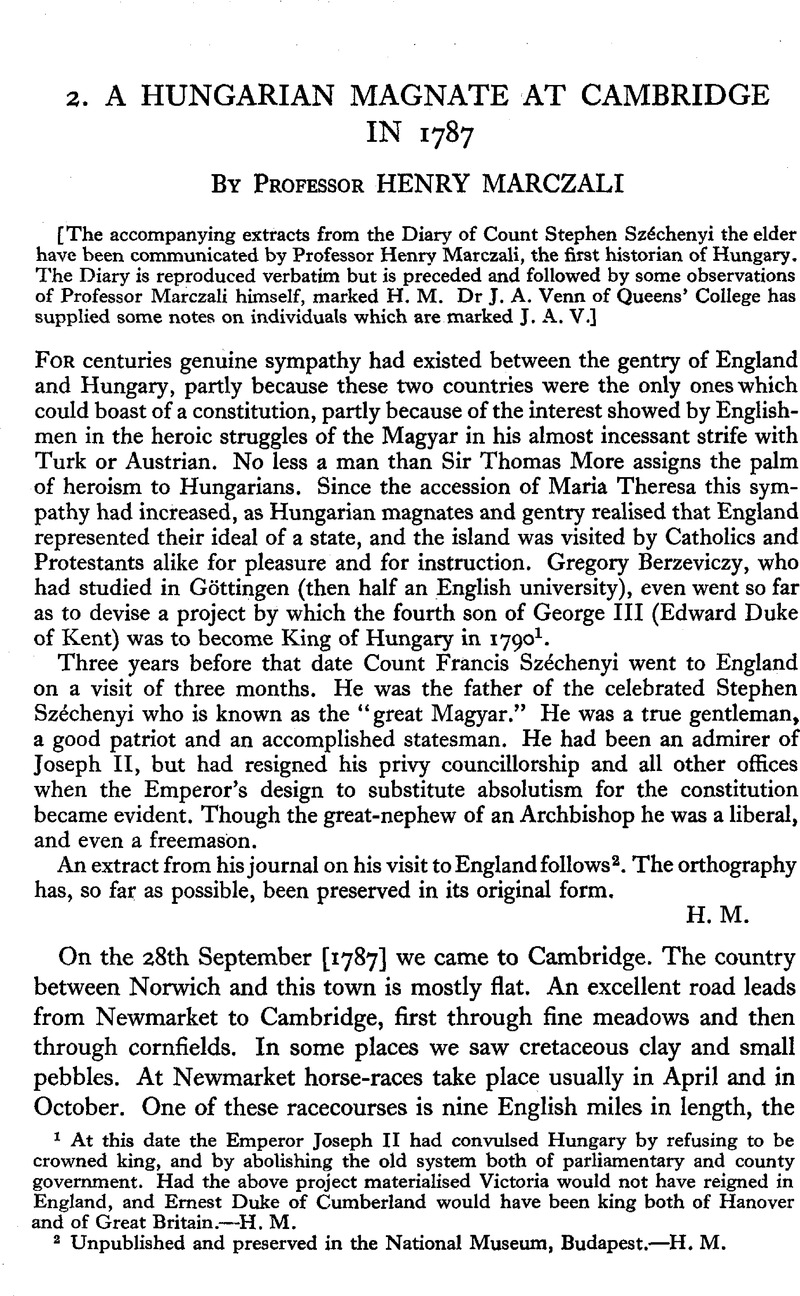Published online by Cambridge University Press: 20 December 2011

1 At this date the Emperor Joseph II had convulsed Hungary by refusing to be crowned king, and by abolishing the old system both of parliamentary and county government. Had the above project materialised Victoria would not have reigned in England, and Ernest Duke of Cumberland would have been king both of Hanover and of Great Britain.—H. M.
2 Unpublished and preserved in the National Museum, Budapest.—H. M.
3 This rather obscure sentence seems to refer to the old practice of cutting off the ears only of the corn with a sickle, and afterwards mowing the long stubble with a scythe for litter.
4 Glynn, Robert. Adm. King's, Scholar from Eton, 1737. S. of Robert, of Helland, Bodmin. B. there, Aug. 5, 1719. B.A. 1741–2; M.A. 1745. M.D. 1752. Fellow. Practised physic at Richmond; afterwards at Cambridge. F.R.C.P. Took the name of Cloberry on inheriting an estate. Friend of the poets Gray and William Cowper. Died Feb.8, 1800. Buried in the College Chapel. (See Al.Cantab. Pt 1,224; D.N.B.)—J. A. V.
5 The following are three possible persons, but it is probably not the last: Wood, James. Adm. Sizar, St John's, Feb. 7, 1767. S. of William, husbandman, of Notts. B.A. 1771; M.A. 1774. B.D. 1781. D.D. 1788. Fellow, 1773–96. Bursar, 1789–95. R. of Wyfordby, 1776; R. of Marston Markyne, 1795. Died Dec. 26, 1814, at Bath. Brother of the next. Wood, William. Adm. Sizar, St John's, Mar. 16, 1764. S. of William. School, Southwell. B.A. 1768; M.A. 1771. B.D. 1779. Fellow, 1775. Senior Bursar, 1795–7. R. of Lawford, Essex, 1806–21. Died Dec. 26, 1821. Wood, James. Adm. Sizar, St John's, Jan. 14, 1778. B. Dec. 14, 1760, at Bury, Lancs, of “humble parents.” School, Bury Grammar. Exhibitioner. B.A. (Sen. Wrangler), 1782; M.A. 1785. B.D. 1793. D.D. (Lib. Reg.), 1815. Tutor. President, 1802–15. Master, 1815–39. Vice-Chancellor, 1816. F.R.S. Dean of Ely, 1820. R. of Freshwater, 1823-. A generous benefactor to the College. Author, mathematical. Died Apr. 23, 1839. (See D.N.B)—J. A. V.
6 Vesper-bread is equivalent to something like five-o'clock tea.—H. M.